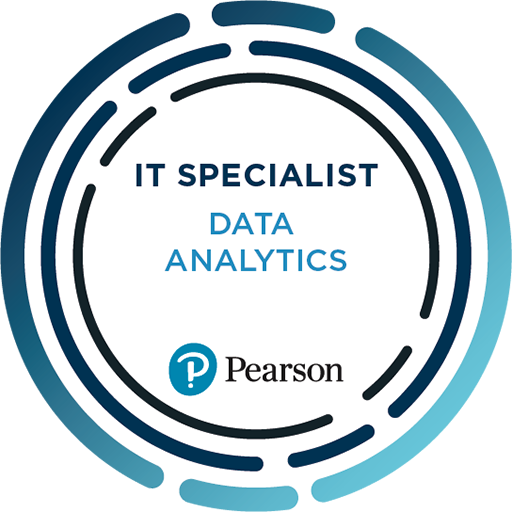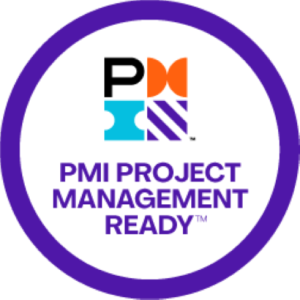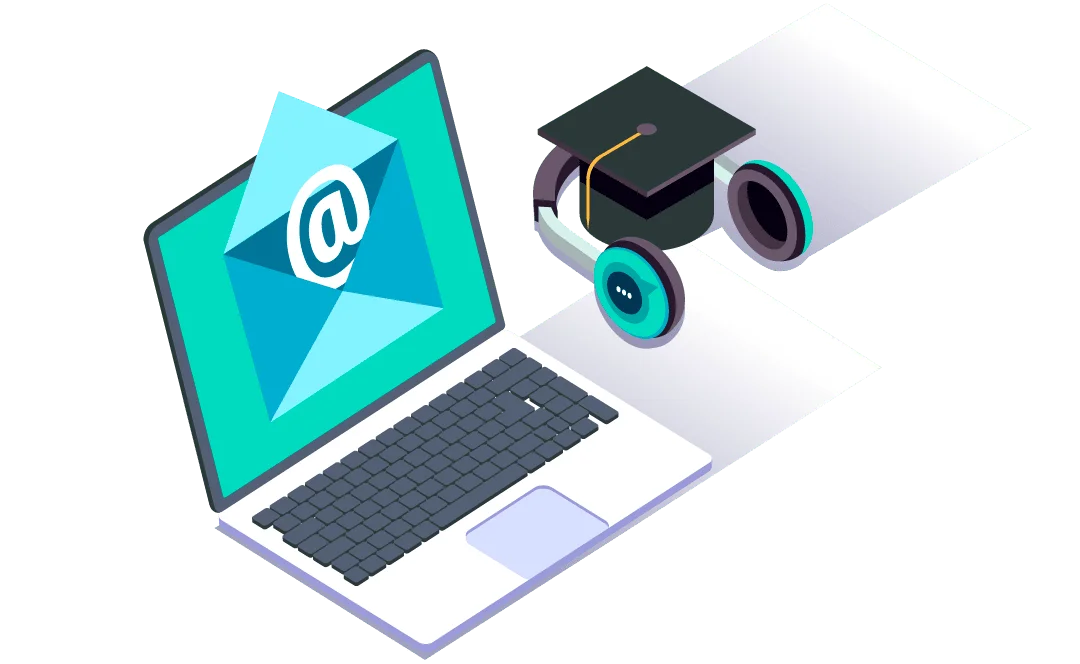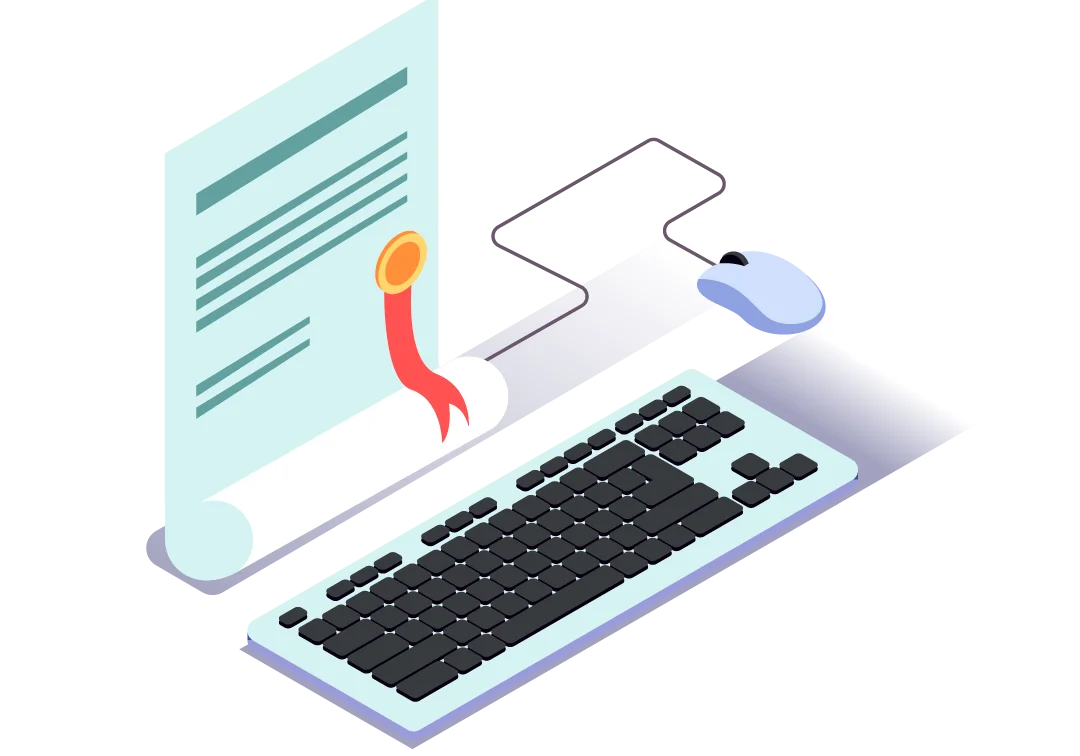Live online classes
October 2025
16 months | 2 weekly live class sessions
No son necesarios conocimientos previos
We prepare you for certification

Official degree in Panama, Colombia, and Ecuador by the Metropolitan University of Education, Science and Technology (UMECIT)
Official degree in Mexico by the Secretary of Public Education (SEP)
Presentation of the curriculum, work tools, and how the programme and group operate.
Free access to further training
This Prework stage introduces concepts that the program will take to greater depth, so students are well grounded from the first day and the entire group has an even level, which allows for further and better progress, as well as improving cooperation between all participants.
50h.
Review of the key programming concepts needed to process and use data by means of code. Introduction to R programming language and an extensive overview of the capabilities that Python offers.
80h.
This module examines what databases are and discusses the main types. Students explore the world of relational database modeling and learn to program in SQL. In addition, the module looks at ETL processes and how they are designed and implemented.
80h.
Review of the life cycle of data and how it affects the data analysis process. Students also explore the world of data visualization and learn to design dashboards in PowerBI.
80h.
This module examines big data analysis as a tool to address key research questions and issues. Students will understand what is meant by big data, how it has developed over time, the causes that have led to the emergence of big data technologies and how it compares with traditional business intelligence.
80h.
Discover and use the tools that comprise the ecosystem in order to process vast quantities of data. These include Spark, Hadoop, and NoSQL databases.
80h.
In this module students learn the fundamental concepts of programming in R, a programming language for statistical computing. The main statistical concepts essential for data analysis are also introduced here.
64h.
Students learn the fundamental concepts and algorithms of machine learning, one of the cornerstones of data science and artificial intelligence.
64h.
The purpose of the Directed Research I module is to enable students to see that research is a systematic and ordered process aimed at managing knowledge. Consequently, during every academic training process, it is essential to carry out research work that is geared towards the needs of a given context and that demonstrates the student's research capabilities.
80h.
Students examine the concept of artificial intelligence, its meaning and the types of problems it can solve. Identification of decision-making techniques (expert systems and supervised learning), as well as their applications. Analysis of reinforcement learning, its life cycle, the most important components, and the types of problems it solves.
Artificial intelligence and applications in decision making. Reinforcement learning and its applications. Techniques and applications of natural language processing (NLP). Recommendation systems and applications.
80h.
Analysis of the concept of the digital transformation from the point of view of the technologies that drive it, with a special focus on the following trends: Big Data, Artificial Intelligence, Blockchain, Internet of Things, Industry 4.0 and Smart Cities.
The Digital Transformation. Blockchain. Internet of Things. Industry 4.0 and Smart Cities
80h.
How analytics can be applied to specific scenarios. Discovering how specialized analytical methods can be applied to different types of data.
Scalable analytics. Analysis of social networks and the Internet of Things. Analysis of the financial area and customer service. Analysis of information retrieval techniques.
64h.
Data collection techniques. Data collection instruments. Research study units and study population. Instrument validity and reliability procedure. Data analysis techniques.
192h.
At Master's level, the written work must be presented and students must generate scientific products from their research experience. Students are responsible for organizing the presentation of the written work.
Introduction Formal issues relating to the presentation of the work. Institutional procedures. Viva voce. Publication.
*The academic program may be subject to changes in line with the changing demand for specific skills in the market. Your employability is our goal.
Download the brochure hereAll applicants must present the following documentation, scanned from the original and sent to the promoter to be hosted on the respective platform:
Note: Students enrolled in virtual mode whose nationality is not Panamanian must present a copy of their personal identification document from the country of origin. If you are a foreign student, these documents must be provided with an apostille stamp or legalization through the corresponding diplomatic channels and translated into Spanish.
Students’ entitlement to remain at the University will depend on their motivation, ability, and vision to obtain their chosen degree.
Given the profile of the university's ‘CYBERHUMANIST’ educational model, students must:
Contents: Maintain a minimum cumulative score of 2 on a scale of 1 to 3.
Note: Pass each subject with a minimum grade of 81 on a scale of 1 to 100, which is equivalent to a B.
To obtain the qualification of Specialist, the following are required:
To obtain the Master’s qualification, the following are required:
To obtain the Master’s qualification, the following are required:
Knowledge
Do
Be
Live
Start
Have you ever imagined being part of the giants of the tech industry? Do you want to become an expert in data analysis, capable of solving complex problems and making strategic decisions based on data? With this master's program, you'll experience an immersive educational journey and dive into the exciting world of Big Data and Artificial Intelligence.
Through a practical approach and based on storytelling, our program will allow you to test the knowledge you've acquired in a simulated professional environment.
With this programme you will acquire the necessary skills to work in a professional environment. In order for you to be able to demonstrate this, IMMUNE prepares you to be certified in:



Specialize from scratch in data science and become an expert: non-tech skills, code, data science, AI, and machine learning. Upskill progressively through an innovative program and benefit from our online and collaborative learning methodology.
Data Scientist | Data Analyst | Data Engineer | Data Visualization Expert | Expert in Data Storage and Processing Architectures | Machine Learning Expert | Business Intelligence Expert | Chief Data Officer (CDO) | Business Analytics | Business Intelligence
The comprehensive training we deliver to our students thoroughly prepares them for the employment market. Through a personalized syllabus, we help them develop professional skills, establish relationships with companies and sail through recruitment processes.
In all our content, we include a percentage of Human Sciences to connect technology with soft skills.
It focuses on the practical application of knowledge and skills to foster meaningful and lasting learning.
Aprende a usar las herramientas líderes del sector.
This questionnaire will allow us to get to know your profile in depth and ensure that this course is perfectly suited to your level of knowledge and expectations, guaranteeing that you get the most out of our program.
The test is completely online, requires no prior preparation, and will take no more than 25 minutes.

If you pay in one instalment you will receive a 15% discount.
Pay in installments, even if you are unemployed and cannot guarantee the loan.
Pay in installments, even if you are unemployed and cannot guarantee the loan.
Pay for your training through the Spanish Employment Training Foundation. Aimed at active workers who wish to finance their program through the subsidized training program.
Once you complete and pass the programme you will receive a diploma issued by IMMUNE Technology Institute in a digital format verifiable through blockchain technology.
Do you want to level up?
Do you want to stay in your field or sector, but you want to continue learning and explore new challenges? It's time to give your professional profile a boost and align it with the latest trends in technology.
Are you finishing your degree, and you want an upgrade in technology?
We love your profile, because you dare to dream. And in the professional world, fortune favors the bold. If you are an entrepreneur or freelancer, this program will help take your professional projects to the next level.
Want to change your professional career?
If you want your career to take a new direction and enter the world of tech with a bang, the program will help you specialize and shape your professional profile.
Are you an entrepreneur or freelancer?
This program will put you in the spotlight, as technology is the engine of innovation and the key to staying competitive in a constantly evolving market.
The tools used throughout the program are licensed for free use, in some cases because we use educational licenses and in others because it is free software.
We have an employability area which, through our Talent Hub program, is responsible for supporting the efforts of our students to enter the employment market. The services we offer include resources to help you search for and prepare for interviews, English tests, resume and/or Linkedin profile guidance, interview and elevator pitch training, and access to our exclusive internship and employment pool.
You will need to have access to a laptop with a camera, microphone and minimum requirements of 8 GB of RAM and an i5 processor.
The final project is where everything you have learned throughout the program is applied and consolidated. You will present the project to a panel of professionals from companies in the sector, which represents a unique opportunity for students to demonstrate their knowledge to potential employers and also to network.
Yes, the program is delivered online with live classes. As such, you will be in direct contact and under the supervision of the teachers, which will enable you to follow the classes and interact in a flexible and natural way.
Yes, there are scholarships or study grants as well as financing options depending on students’ circumstances. Check out our scholarship and financing options.
Our students are characterized by their passion for technology. Our admissions process focuses on who you are, how you think, what you have accomplished, and then sharing your goals.
Our aim is to get to know you better, see what makes you unique and ensure that the IMMUNE educational model adapts to your profile.

1. Application

3. Academic committee

4. Enrollment

2. Personal interview
Designed to replicate an ecosystem of start-ups and tech companies, we’ve created a slice of Silicon Valley in the heart of Madrid.